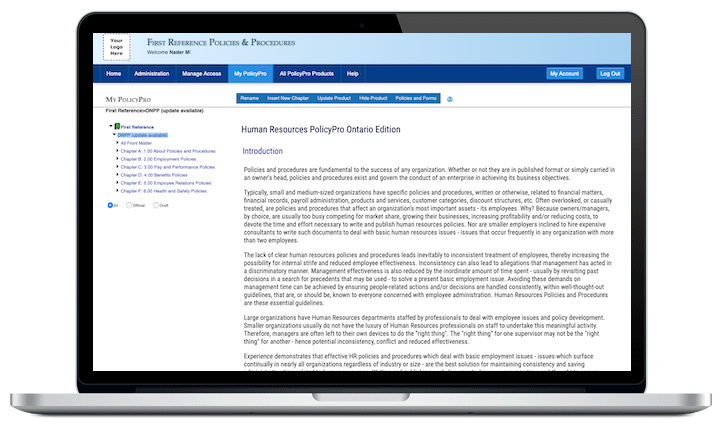About Christina Catenacci, BA, LLB, LLM, PhD

Findings of investigation: LifeLabs breach
On June 25, 2020, the Ontario and British Columbia Information and Privacy Commissioners just shared the results of their joint investigation regarding a serious breach that took place in 2019 – the findings revealed that LifeLabs, Canada’s largest provider of general health diagnostic and specialty laboratory testing services, failed to protect the personal health information of millions of Canadians.
Christina Catenacci, BA, LLB, LLM, PhD

Workplace organizational behaviour part II: Perception
Behaviour in the workplace is based on people’s perception of it. In this post, let’s examine how one’s perception influences productivity, absenteeism, turnover and job satisfaction.
Christina Catenacci, BA, LLB, LLM, PhD

Personal information and medical leaves – careful what you disclose
I recently read an interesting case made by the Office of the Privacy Commissioner of Canada (decision 2014 – 014) stating that under subsection 5(3) of the Personal Information Protection and Electronic Documents Act (PIPEDA) that the employer’s purposes for disclosing the employee’s personal information regarding his medical leave were not appropriate in the circumstances and were not necessary for the organization to meet its employee schedule management needs in the context of its work environment.
Christina Catenacci, BA, LLB, LLM, PhD

Is 15 years old too young to work construction?
A very sad story was recently published in the Globe and Mail about a 15-year-old boy who was working at a gravel-crushing site in Alberta, when he became entangled in a conveyor belt and was killed. It leaves one wondering whether the age of 15 is an appropriate age for young persons to be working in the construction industry.
Christina Catenacci, BA, LLB, LLM, PhD
Employee who lied about ability to work justly fired
An Ontario labour arbitrator upheld an employee’s termination for just cause after the employer learned that the employee faked the severity of her injury and ability to perform work for over five years. The arbitrator found that the employer was justified in terminating the employee for just cause because the actions of the employee went to the heart of the employment relationship.
Christina Catenacci, BA, LLB, LLM, PhD

Must vacation time be given in consecutive weeks?
Does your vacation policy require employees to take time off in consecutive weeks? What does the law say? The answer: it depends on the jurisdiction.
Christina Catenacci, BA, LLB, LLM, PhD

Air Canada’s mandatory retirement practice upheld
A recent decision by the Federal Court of Appeal has upheld the mandatory retirement practice for Air Canada pilots. This decision overturns earlier findings by the Federal Court of Canada and the Canadian Human Rights Tribunal that contractual provisions forcing Air Canada pilots to retire at 60 violated the Canadian Charter of Rights and Freedom.
Christina Catenacci, BA, LLB, LLM, PhD

Air Canada pilots’ mandatory retirement saga continues
As you may recall, Air Canada pilots launched human rights complaints on the ground of age discrimination because the company forced them to retire at age 60. In a history of decisions spanning back to 2007 challenging the Air Canada policy that requires pilots to retire at the age of 60, which section 15(1)(c) of the Canadian Human Rights Act purports to allow, the Canadian Human Rights Tribunal recently made two more decisions. One involved…
Christina Catenacci, BA, LLB, LLM, PhD

Worker injured in parking lot on way to work not eligible for workers’ compensation benefits
Ontario’s Workplace Safety and Insurance Appeals Tribunal has decided that a worker was not acting in the course of employment when she slipped and fell in the parking lot of the mall where she worked. As a result, she could not access workers’ compensation benefits; however, she retained her right of action in a civil suit […]
Christina Catenacci, BA, LLB, LLM, PhD